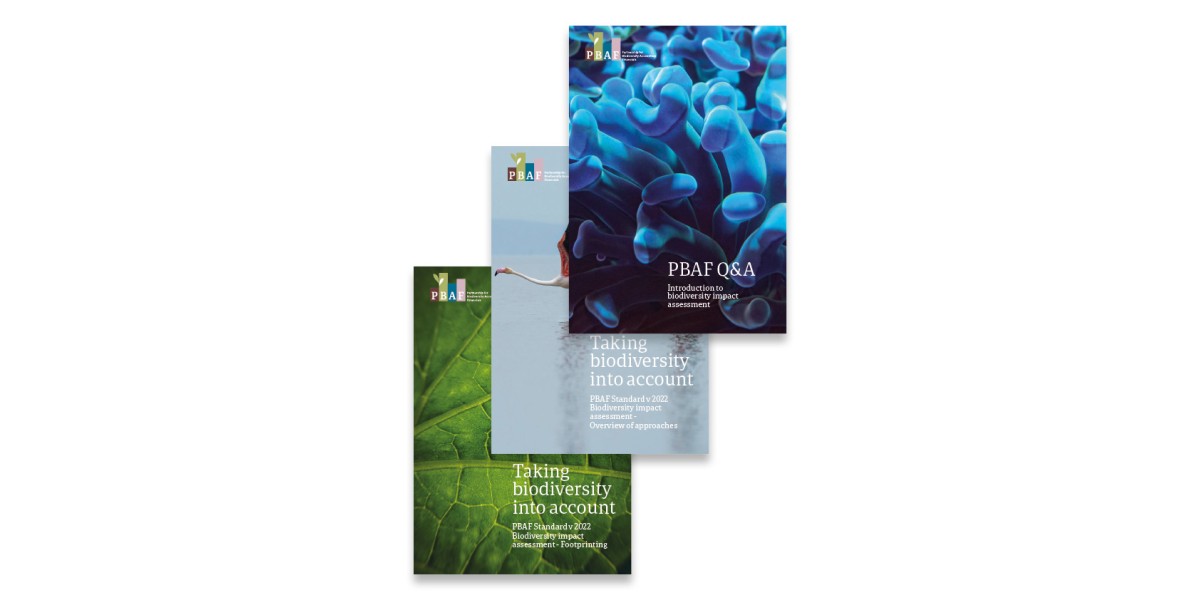
How can financial institutions reduce their negative impact on global biodiversity and work towards biodiversity restoration? A question that the Partnership for Biodiversity Accounting Financials (PBAF), an international partnership of banks, asset managers and investors, has been pondering for several years. Today PBAF presents a new standard for financial institutions to measure the impact of loans and investments on biodiversity. According to PBAF, every bank, asset manager or pension fund can use this to measure and take action in a targeted way towards reducing their negative impact, and protecting and restoring biodiversity. The PBAF participants call on other financial institutions to join them and work together towards a single global approach for the financial sector.

Roel Nozeman, Senior Advisor on Biodiversity at ASN Bank and PBAF Programme Director, presented the report today on behalf of the 36 PBAF participants.
"Biodiversity is under severe pressure worldwide. And yet our society and economies are highly dependent on the functions that nature provides. The financial sector has a crucial role to play in reducing damage to biodiversity and in guiding the sustainable use, protection and restoration of nature. Being able to measure our impact on biodiversity is an important prerequisite for fulfilling this role. The report we are presenting today gives banks, asset managers and pension funds the insights they need to get started on this right away. It is an invitation to all financial institutions worldwide to join us in building a sustainable future."
The 'PBAF Standard 2022' describes by way of requirements and recommendations what is needed to carry out a biodiversity footprint: an assessment for financial institutions to measure, manage and report on the negative and positive impact of their loans and investments (e.g. shares, bonds and green bonds) on biodiversity. For example, fund managers can estimate the loss of biodiversity from an investment in an international food company and gain insight into the underlying causes.
Besides important preconditions, the standard explains various methodologies and tools that financial institutions can use to map out their impact. Innovative examples are the use of satellite images to map deforestation and the detection of certain animal species through DNA traces in rivers.
The standard is harmonised as much as possible with other initiatives in the financial sector, such as the Taskforce for Nature Related Disclosures (TNFD), the Science Based Targets Network (SBTN) and the EU Align project.
Biodiversity, the variety of life and the ecosystems in which this life occurs, is the basis of everything that keeps us and our society alive. Recent studies show that life and ecosystems worldwide are being affected at a rapid rate, with deforestation, the intensification of agriculture, overfishing, hunting, pollution and climate change being major causes. Sweeping economic, political and social changes are necessary to prevent the extinction of one million plant and animal species in the coming decades. This requires additional measures from governments, businesses and the financial sector.
The Partnership for Biodiversity Accounting Financials (PBAF) was established in 2019 by founding partners ASN Bank (part of de Volksbank), ACTIAM, FMO, Robeco, Triodos Bank and Triple Jump. The foundation's objective is to contribute to a harmonised approach to assessing and measuring biodiversity impact by the financial sector through knowledge exchange and the development of the 'PBAF Standard'. This will allow for the protection and restoration of nature to proceed in a targeted manner. PBAF has grown in a relatively short period of time into an alliance of 36 financial institutions from 9 countries, with total financial assets of 8.2 Trillion US dollars. In 2021, the initiative was transformed into an independent foundation. PBAF is a sister initiative of the Partnership for Carbon Accounting Financials (PCAF), which now has a membership of 264 financial institutions worldwide. For more information: www.pbafglobal.com